In October 2022, President Biden announced three steps on marijuana reform. His stated goal was to reduce the negative consequences of criminal convictions for marijuana possession (while leaving the consequences for trafficking, marketing, and underage sales in place):
“As I often said during my campaign for President, no one should be in jail just for using or possessing marijuana. Sending people to prison for possessing marijuana has upended too many lives and incarcerated people for conduct that many states no longer prohibit. Criminal records for marijuana possession have also imposed needless barriers to employment, housing, and educational opportunities. And while white and Black and brown people use marijuana at similar rates, Black and brown people have been arrested, prosecuted, and convicted at disproportionate rates.”
President Biden immediately pardoned anyone with a prior federal conviction for simple possession of marijuana. Next, since most such convictions are at the state level, he urged state Governors to do the same. Finally, he asked the Secretary of Health and Human Services to reconsider how marijuana is scheduled under federal law, presumably to move it from a Schedule I drug (the classification of the most dangerous substances) to a less-restrictive schedule or even to legalize it.
We recently polled the Criminal Justice Expert Panel (CJEP) on this topic. (See our earlier post for more information on the CJEP.) We provided three statements based on President Biden’s three actions. We asked our panelists to rate their level of agreement with each statement, on a five-point scale from strongly disagree to strongly agree. We also asked our panelists to rate their level of confidence in their response, from 0 (not at all confident) to 10 (very confident). This allows us to aggregate their responses as raw averages across all panelists, and as weighted averages that give more weight to the responses of panelists who were more confident – perhaps because this topic is firmly in their area of expertise and they know the research literature well.
The results are below. You can also explore individual panelists’ responses on the CJEP website. And stay tuned for future surveys! On the website, you can sign up for the CJEP newsletter to be the first to hear about new survey results. You can also follow the CJEP on Twitter.
Criminal Justice Expert Panel Survey Results: Marijuana reform
Statement 1: Pardoning federal convictions for simple possession of marijuana will have meaningful social benefits that exceed any social costs.
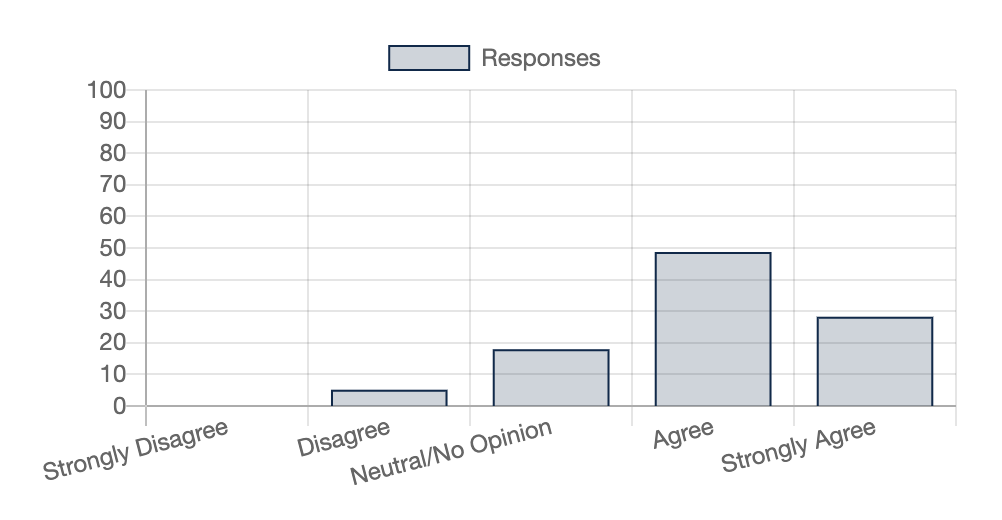
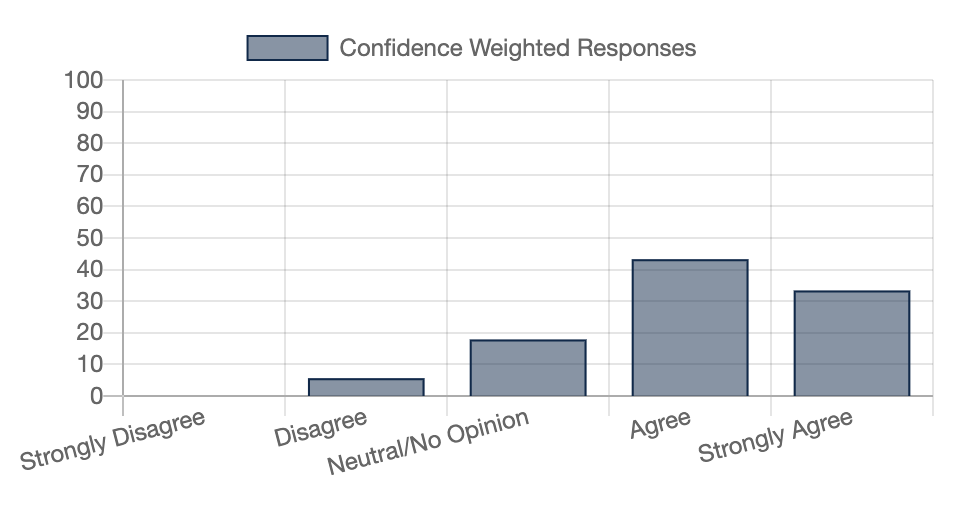
Selected panelist comments (edited lightly to correct typos):
“People convicted of possession in Federal Court may not be a random sample of simple users and may in fact have committed more serious crimes that the prosecutor couldn’t prove—like convicting Capone of tax evasion. Still that’s not the way the system is supposed to work and I approve overall of the change.” – Alex Tabarrok (George Mason University)
“I support the policy, but the impact will be very small. There are few standalone federal convictions for marijuana possession.” – Felipe Goncalves (University of California, Los Angeles)
“Simple marijuana possession convictions are very rare today and sentences are pretty short. So, there’s some notional value to removing a rarely enforced law from the books, but it would affect few recently convicted people. People who were sentenced a long time ago already paid the direct penalty of incarceration and the secondary costs of being labeled a felon. A long-delayed pardon has few costs, but benefits might accrue mostly to politicians.” – Greg Midgette (University of Maryland)
“I don’t perceive large social costs to this reform; I’m just unsure how large/`meaningful’ the social benefits will be. A small number of people will be directly affected by the president’s actions, and even the number that would be affected if all states were to follow the federal government’s lead would be quite small relative to the size of the criminal legal system. This doesn’t mean it’s a bad idea! I just don’t want to overstate its significance compared to other possible reforms.” – Ariel White (MIT)
“I don’t think the benefits will be large, but they will have a meaningful impact in some communities.” – Shawn Bushway (RAND)
Statement 2: Pardoning state convictions for simple possession of marijuana will have meaningful social benefits that exceed any social costs.
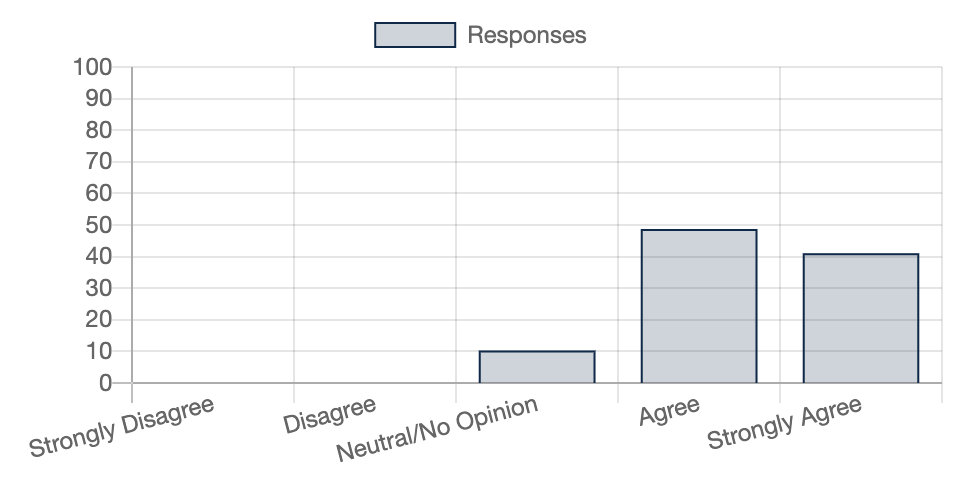
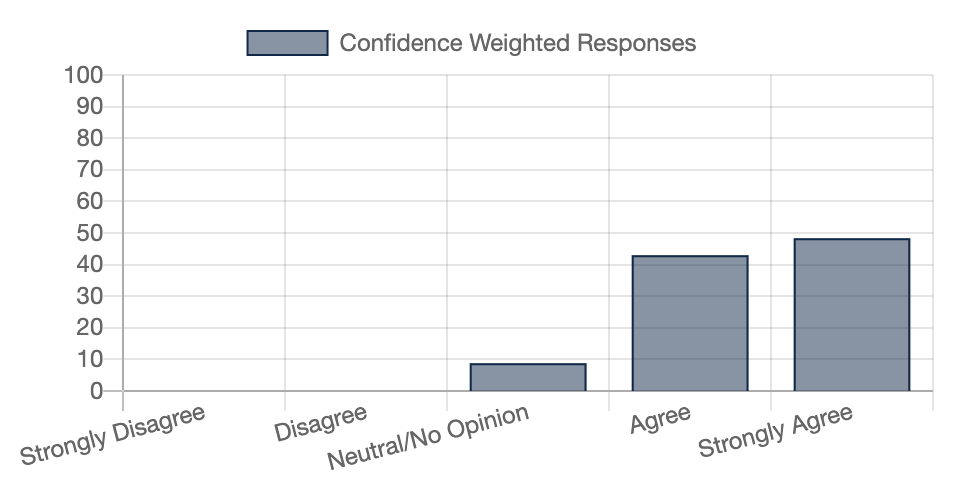
Selected panelist comments (edited lightly to correct typos):
“Few people are in state prison for simple possession. If the government wants to reduce the use of incarceration further, it needs to think about its approach to violence.” – David Kirk (University of Oxford)
“While there is not a great deal of causal evidence suggesting large long-term benefits to expungement, any social costs associated with this reform are minimal. The largest benefits would likely be among individuals with very recent convictions and without convictions for other offenses.” – Kevin Schnepel (Simon Fraser University)
“Pardoning individuals is just one step. Decriminalizing marijuana possession will only have positive spillover effects if local police do not shift patrolling activities to target quality-of-life offenses. If so, a less punitive approach to marijuana would likely be offset by a more aggressive approach to combating other criminal offenses. Therefore, decriminalizing marijuana should also be accompanied by new policing strategies to deter serious offenses.” – Jamein Cunningham (Cornell University)
“Conviction records for nonviolent offenses appear to impose large net social costs (Mueller-Smith and Schnepel 2021), so any step towards reducing the visibility/impact of nonviolent criminal records is likely to have positive social benefits.” – Anna Harvey (New York University)
“Very few people end up in prison or jail on possession alone without significant other criminal histories. However, given that marijuana is essentially de-criminalized in half of US states and widely used, it makes little sense to allow a conviction for possession to remain on someone’s record.” – John MacDonald (University of Pennsylvania)
Statement 3: Moving marijuana from a Schedule I drug to a less-restrictive schedule or legalizing it at the federal level would have meaningful social benefits that exceed any social costs.
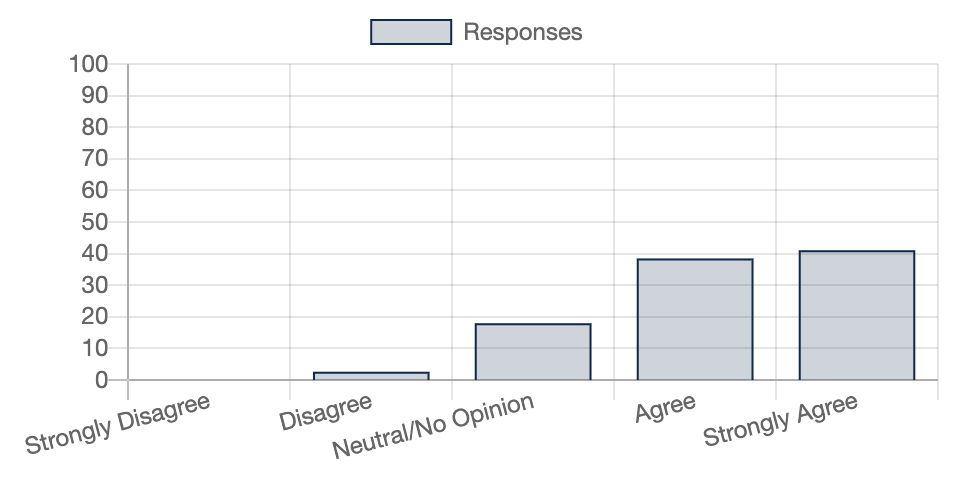
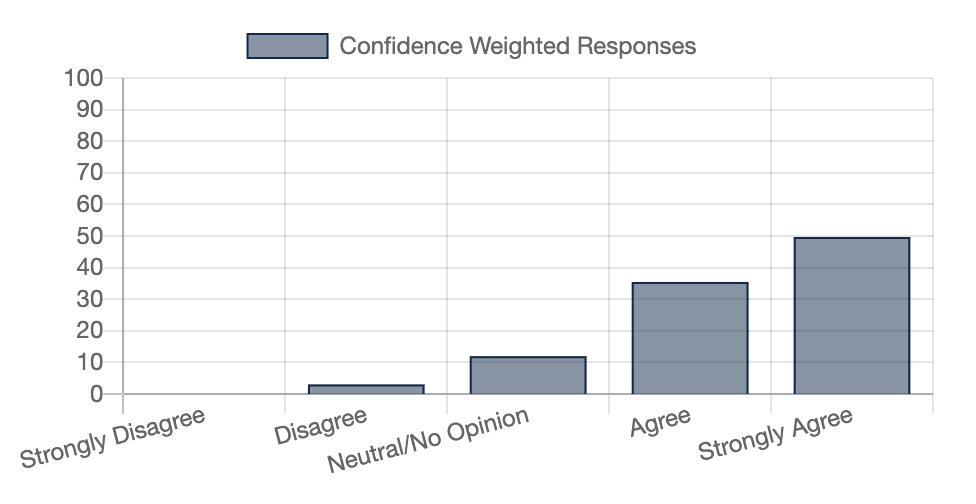
Selected panelist comments (edited lightly to correct typos):
“I can’t answer this because the HOW here is so important. The impacts of rescheduling are going to be fundamentally different than the impacts of federal legalization that (for example) allows commercial cultivation and retail sales, interstate commerce, etc. The likely effects of federal legalization itself will hinge critically on how the legal regime is designed and regulated as these specifics will shape price/availability, potency/product variety, and the functioning of illegal markets.” – Rosanna Smart (RAND)
“At minimum, this would make it easier to conduct credible research on the costs and benefits of marijuana consumption, so society could have a more clear picture of the implications of expanded use.” – Emily Owens (University of California, Irvine)
“Evidence is still relatively new here but so far evidence on recreational legalization and MML laws suggest legalization has either no effect or may even reduce crime. Although Blacks make up a disproportionate share of marijuana arrests, it is not clear whether passage of such color-blind laws will actually decrease racial disparities in arrests for marijuana. Finally, marijuana has medicinal purposes so it is debatable whether it should be a schedule I drug to begin with.” – Robynn Cox (University of California, Riverside)
“Schedule I is reserved for substances with no accepted medical use and a high potential for abuse. It makes zero sense for marijuana to be on that list, for other drugs to be listed in a lower Schedule (e.g., methamphetamine), and for alcohol to not be listed at all. There have been no meaningful social benefits to it being listed in Schedule I, so it should not require proof of benefits to remove it. Law enforcement could maybe even boost clearance rates of more serious crimes.” – Robert Apel (Rutgers University)
“Marijuana’s scheduling is one of the chief obstacles in helping to reduce the negative externalities marijuana can have. As a schedule I drug, we are limited in the medical research we can do. Some people drive high, and this is a negative externality. Others drive having recently smoked in the last few days or weeks. Current tests don’t distinguish between the two. At the same time, I worry about big tobacco taking over the industry, so care and appropriate regulation is needed.” – Benjamin Hansen (University of Oregon)